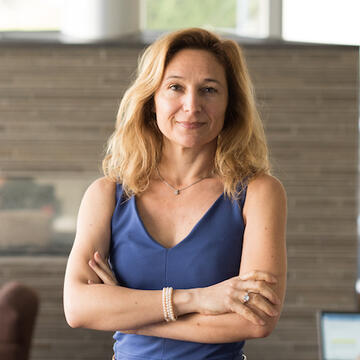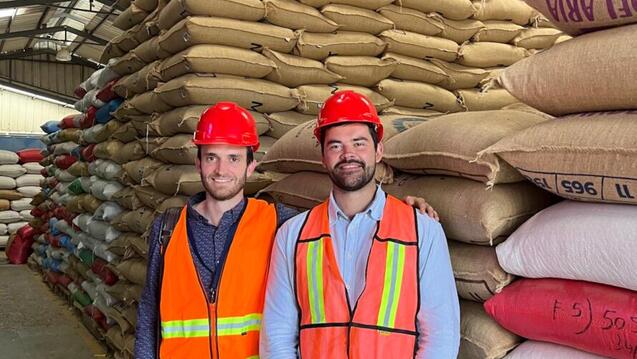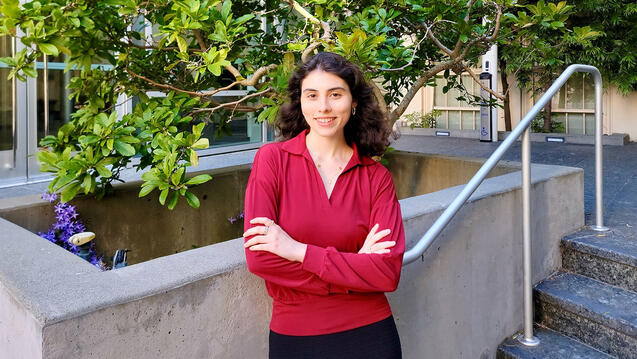
Advancing the Frontiers of Behavioral and Development Economics: The Work of Professor Alessandra Cassar
Dr. Alessandra Cassar is a Professor in the Department of Economics and a former Academic Director of the International and Development Economics (IDEC) master’s program at USF. Her research spans gender, conflict, development, and evolutionary behavior economics, often combining field experiments with empirical methods.

Professor Cassar is currently engaged in projects across three main areas of her interest: the effects of violence and war, gender disparities, and the evolution of prosocial behavior. One long-running study focuses on women abducted by the Lord’s Resistance Army in Northern Uganda. Her research examines the lasting mental health effects of abduction and victimization, and is now testing interventions of mental health therapy, social support, and monetary assistance in post-conflict recovery.
“What I’ve found again and again,” she explains, “is that people who are more victimized tend to be more cooperative and more prosocial.” This counters the common assumption that conflict and disaster bring out selfish behavior, and instead suggests a strong role for social cohesion in post-conflict recovery
In another study, Professor Cassar and colleagues designed an experiment to understand why fewer women run for political office. They found that emphasizing the prosocial nature of leadership—by allowing winners to share earnings with others—led to higher participation from both genders. “We didn’t close the gender gap, but we significantly increased the number of women entering elections,” she notes.
She is also pursuing a novel research area at the intersection of economics and evolutionary biology (i.e., the cooperative breeding hypothesis). This theory suggests that raising children requires help beyond the mother—such as from fathers, grandparents, and neighbors—and may explain the evolution of certain female and male behavioral strategies. Recently published in Evolution and Human Behavior, Professor Cassar explored the hypothesis that depression—especially around childbirth—might be an evolved strategy to elicit social support. Using a regression discontinuity design with women in Uganda, the study found that women with depression scores slightly above a certain threshold received more help from others than those slightly below, particularly from male relatives and partners. “It’s the first causal test of a theory that evolutionary psychologists have discussed for two decades,” she says. “And it’s exciting to be able to contribute that kind of evidence.”
Professor Cassar’s work frequently includes IDEC student collaborators. Many of the projects mentioned above were co-authored with groups of IDEC and MSAE students. She highlighted a memorable field project in the Solomon Islands where a group of IDEC students conducted research for nearly two months with minimal access to the internet or phone service. Despite the challenges, the students collected valuable data and considered the experience both personally and academically rewarding.
As an initial faculty of the program, Professor Cassar has observed how IDEC has adapted to students' changing interests. In recent years, the curriculum has expanded to reflect the rising demand for technical skills, offering applied econometrics courses that emphasize Stata, R, Python, and machine learning. She believes the program’s small size is an asset. “We’re able to adapt quickly and stay relevant,” she says.
Professor Cassar emphasizes that one of IDEC’s greatest strengths is the research experience students gain. “Many of our students finish the program with a completed paper, and some even submit their papers to academic journals,” she says. This preparation gives students a competitive edge for PhD programs, pre-doc positions, and research roles in both the private and nonprofit sectors.
She encourages students to take full advantage of faculty mentorship. “In IDEC, every student works one-on-one with an advisor. That individualized attention is rare in master’s programs and is where most of the real learning happens.”
Her main advice is to approach the program with commitment and curiosity. “Learn as much econometrics as you can, but also follow your research interests,” she says. “You’ll struggle, but that’s where real learning happens. You don’t learn everything and then apply it. You learn through the process of doing.”


